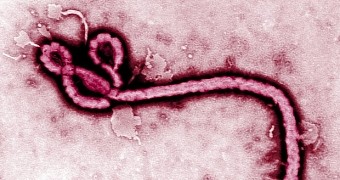A recent paper in the Journal of Clinical Investigation describes a novel Ebola vaccine that does not require trained medical staff or even needles to administer.
That's because the vaccine, developed by a team of scientists with the National Institutes of Health and the University of Texas in the US, is designed to be breathed in. Otherwise put, it is an inhalable Ebola vaccine, also known as an aerosolized vaccine.
What use is an inhalable Ebola vaccine?
The specialists who collaborated on this research project say that, according to recent studies, the Ebola virus can enter the body via the respiratory tract.
More precisely, there is evidence that people can become infected with Ebola, should the deadly virus reach the mucus membranes lining their airways. The inhalable virus was developed especially to prevent Ebola from entering the body in this manner.
To test the vaccine's effectiveness, the researchers carried out experiments on non-human primates and found a single dose to be more than enough to offer protection against the disease. The team is now looking to test the vaccine on people.
The scientists believe that, when it comes to containing the spread of Ebola, inhalable vaccines are likely to prove more effective than traditional ones.
“A single-dose aerosol vaccine would enable both prevention and containment of Ebola infections, in a natural outbreak setting where healthcare infrastructure is lacking or during bioterrorism and biological warfare scenarios,” said virologist Alex Bukreyev, as cited by Science Daily.
This Ebola vaccine is the first of its kind
Inhalable vaccines are not exactly a novelty. Still, the aerosolized Ebola vaccine developed by scientists at the University of Texas and the National Institutes of Health in the US is hailed as a breakthrough.
This is because the researchers are the first ever to attempt aerosolized delivery for a viral hemorrhagic fever vaccine. As specialist Alex Bukreyev put it, “This study demonstrates successful aerosol vaccination against a viral hemorrhagic fever for the first time.”

 14 DAY TRIAL //
14 DAY TRIAL //